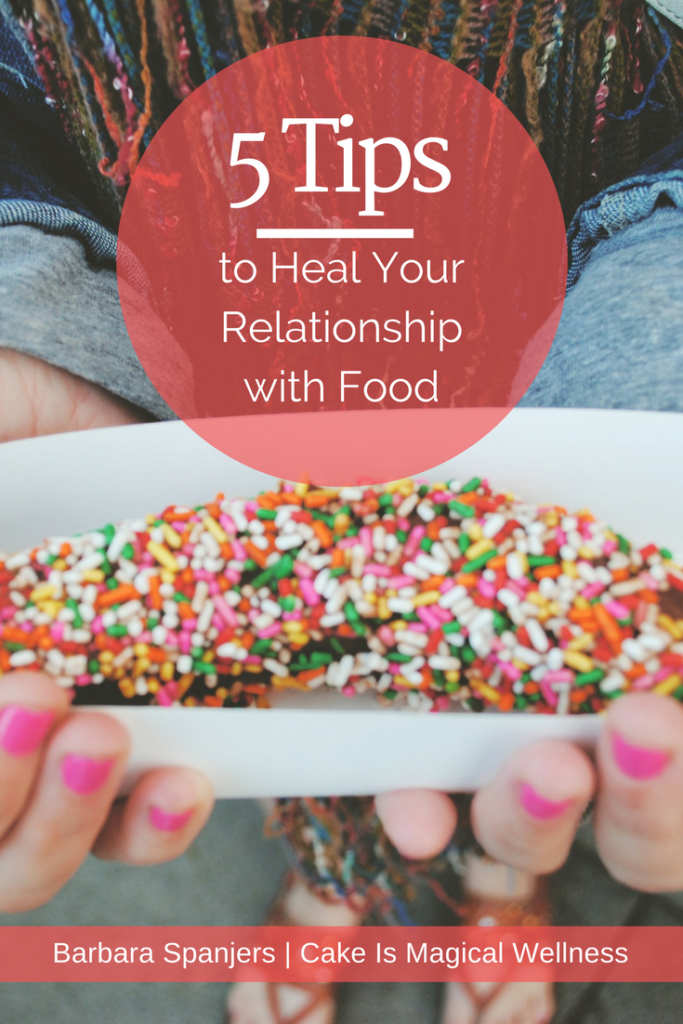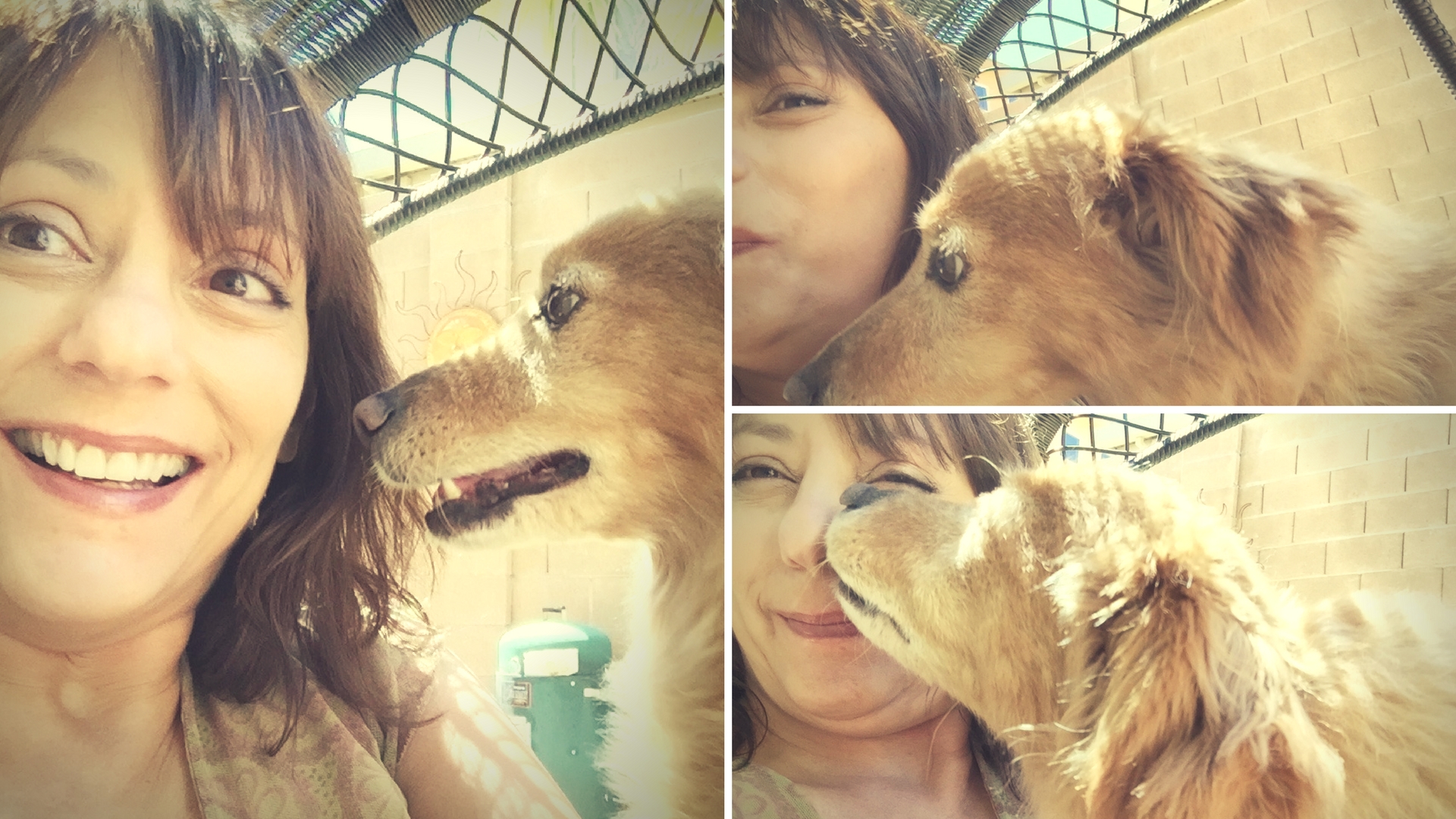Do you ever have the feeling that you should heal your relationship with food? Maybe you’ve tried lots of diets, or eating plans, or just “eating clean.” But underneath the surface you know that if you and a cupcake were locked in a room together, the cupcake wouldn’t be safe.
With icing smeared in the corner of your mouth, you’d feel guilty. Worst of all, eating the one cupcake unleashes the “what the hell” phenomenon, and you go eat more cupcakes. And fries. And the cheese puffs that leave orange powder all over the place.
And you figure you’ll start fresh Monday.
How do I know this? No, I haven’t been watching you on video surveillance. I know it from both personal experience and also from those I’ve worked with as a therapist and a wellness coach. This pattern is really common, but you can break the cycle to become peaceful around food.
Here are five things to understand that will help you heal your relationship with food.

1. Understand that biology is powerful
We understand when our body tells us we need to sleep. We respect when our body tells us we need to use the toilet (you gotta respect that one). But when it comes to eating, we figure we can override our own biology.
One example is trying to lose weight based on what we’d like to weigh, or maybe even a weight that we once reached through diet and exercise. But here’s the deal: our bodies have a natural set-point range of 10-20 pounds. Our bodies protect us a little big at the upper end of our weight set-point. But if you try to go below it, your body pulls out all known counter-tactics to get your weight back up.
Ever been on a diet and feel especially taunted by fried foods and ice cream? It’s not your imagination. It’s your body making energy-packed (read: high-calorie) food seem especially tantalizing.
2. Your body is trying to communicate with you but you haven’t been listening
If you have been on lots of diets, the chances are pretty good that you’ve learned to tune out your body’s natural cues of hunger and fullness. Every time you invoke willpower to override your growling stomach, you are training yourself to ignore your body. So it’s not that you have been choosing to ignore your body – but every diet makes you less likely to be able to really listen. When you’re choosing to not pay attention to your body’s signals, it’s like when you tell your partner about something really important, but they just keep scrolling through their Facebook feed. On the other hand, when you try to listen to your body but are out of practice, it’s like trying to follow a foreign film without dubbing or subtitles.
In my work with clients, one of the most basic things we do is to get back in touch with noticing hunger, neutral, and fullness. Sounds simple, but it is a process that often takes time and encouragement.
Intuitive eating is a powerful way to heal your relationship with food. Get personalized support in the Intuitive Eating Mentoring Group.
3. Feeling guilty about eating doesn’t do you any good
There is a whole lot of talk about what you should eat and what you shouldn’t eat. Although nutrition is important overall, labeling foods as good vs. bad or clean vs. junk often leads to overeating. When you view foods as black/white, perfection/failure, don’t be surprised to find yourself face-planted into a bag of tortilla chips as soon as you eat one “unclean” food. Everywhere you turn, marketers tout “guilt-free” vs. “sinful” food, but that only serves to heighten anxiety to get you to buy more of the “guilt-free” food.
4. Mindfulness will help you enjoy your food more (and maybe eat less)
Most of us eat without thinking too much about the experience. We eat while checking our email and social media. We eat in front of the TV. We eat while driving. All of that adds up to a ton of mindless eating. When you are distracted while you dine, you feel like you haven’t eaten at all, and so you keep eating. Mindful practices can help you really enjoy your meals more, so less food gives more pleasure and satisfaction. And it’s important to emphasize that mindfulness isn’t a tool to make you eat less. Mindfulness is about being aware of your present experience without judgment. But eating mindfully will help decrease any overeating that is due to tuning out/glazing over.
5. Our culture is invested in making you hate your body
Name a body part that doesn’t have something marketed to it. Did you come up with one? When all of our parts, head to toe, have some perceived flaw for which we can buy a “cure,” no wonder we feel insecure. Weight is arguably the main target of marketers, supporting a $60-billion/year industry. Healing your relationship with your body will help you heal your relationship with food, because a dissatisfaction with your body is often the core that drives dieting and other belief systems about food.







